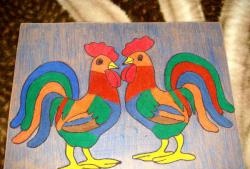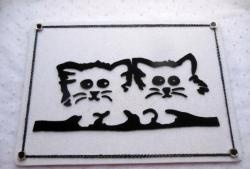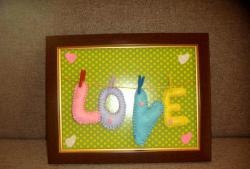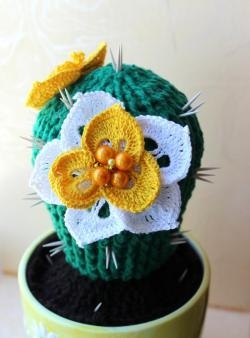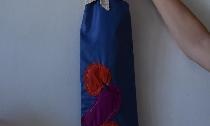Picture of knitted elements “Underwater life”
Bright knitted composition on a marine theme. This picture will give a charge of positive, sunny mood and fill the life of each of us with the atmosphere of summer. Now memories of the sea and the beach will begin to emerge not only in your memory, but also in your room.
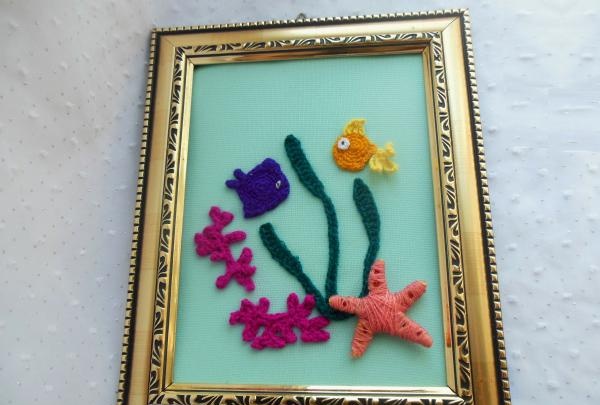
Recreating a piece of marine fauna and flora is not a difficult task, because you can learn the basics of crochet in just a few hours. Yes, and for such a picture you will need very few materials:
• 6-7 small multi-colored balls of thin yarn (the presence of green threads is a prerequisite, the rest of the yarn can be chosen arbitrarily);
• thin crochet hook (1.4-1.6 mm);
• any wooden frame 15x21 cm (you can take a frame from an unnecessary picture);
• green, blue or turquoise elastic fabric (preferably stretch);
• sheet of thick cardboard;
• plasticine;
• sewing needle with a large eye.
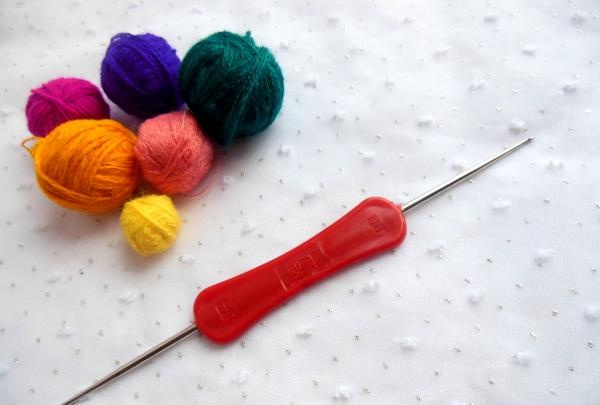
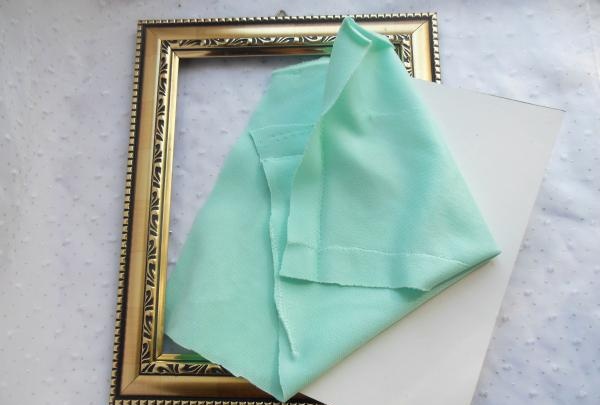
We knit all sea creatures from yarn. We use the fabric once to create background contrast, otherwise we constantly work with crochet.
First we knit fish. We collect 2-3 air loops (in.n), we combine the chain into a ring and knit up to 5 circular rows with single crochets (dc/dc).
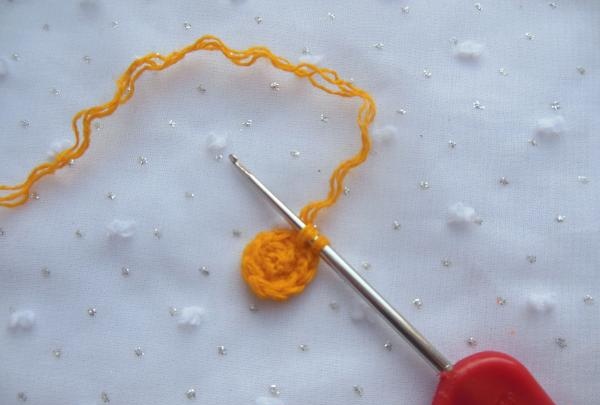
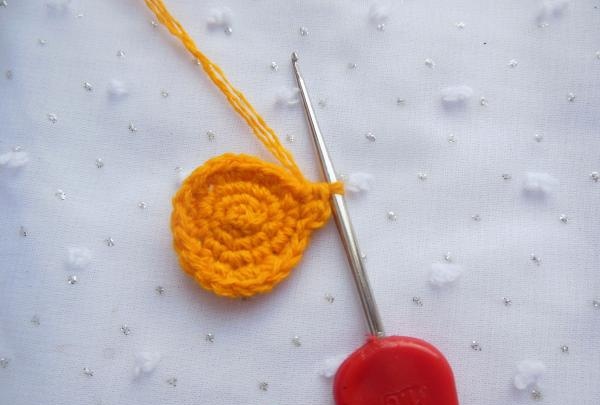
The goldfish has a bushy tail, so part of the circumference needs to be lengthened in straight rows (it is enough to knit 2-3 stitches twice) and knit 3 chains of 14 in each from this section. P.
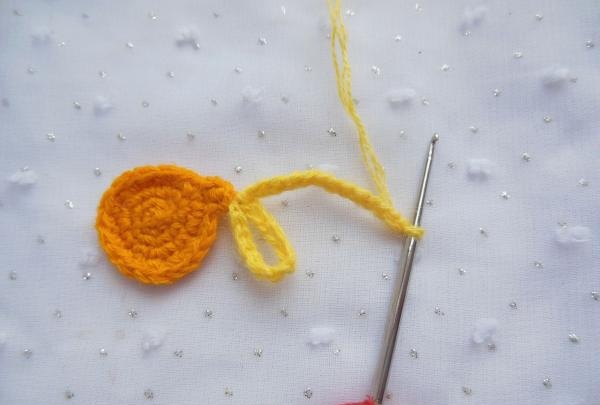
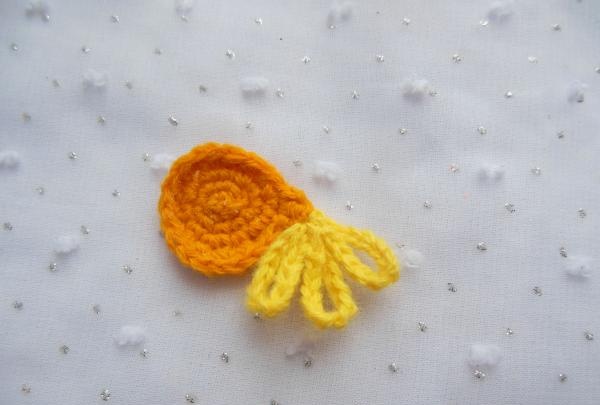
We knit the fins with double crochets, gradually increasing their number (4 double crochets with a uniform increase: double crochet, then 2, 3, etc.).
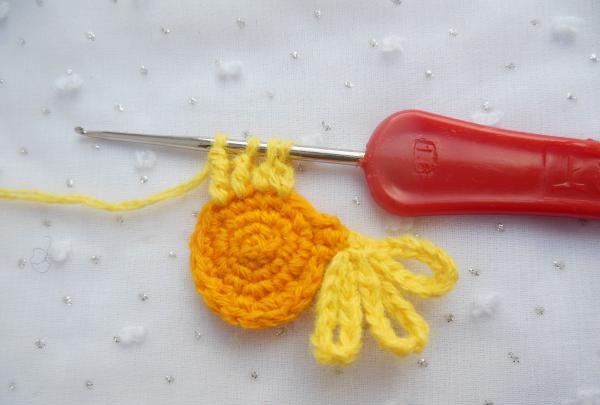
For another fish (angelfish) we make such fins on both sides (opposite each other).
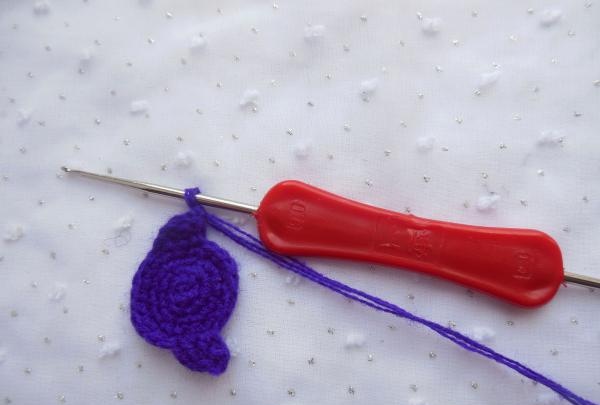
Then we form eyes for the fish with a needle and black or white thread.
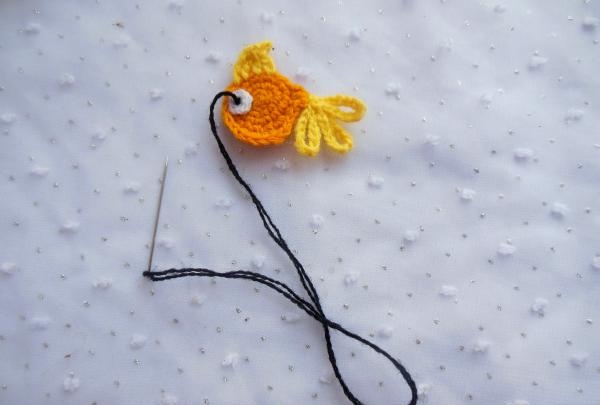
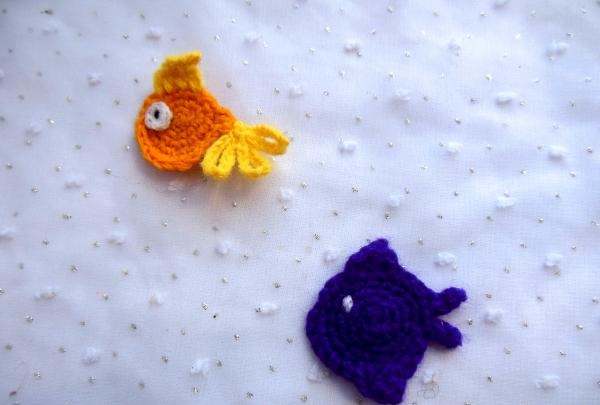
We make algae and corals from chains, which we knit with the same double stitch. n, where only the tips of the green sea plants are expanded by adding additional yarn overs in 5-6 columns from above.
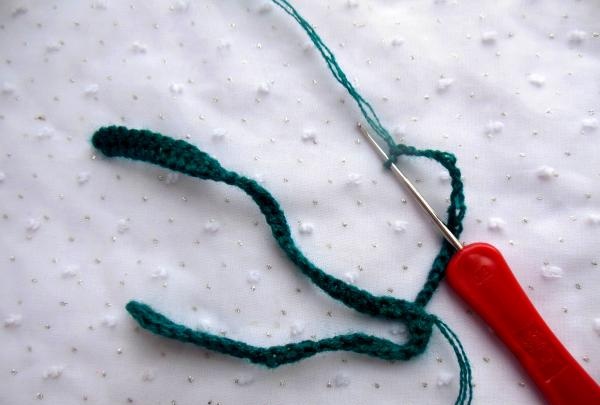
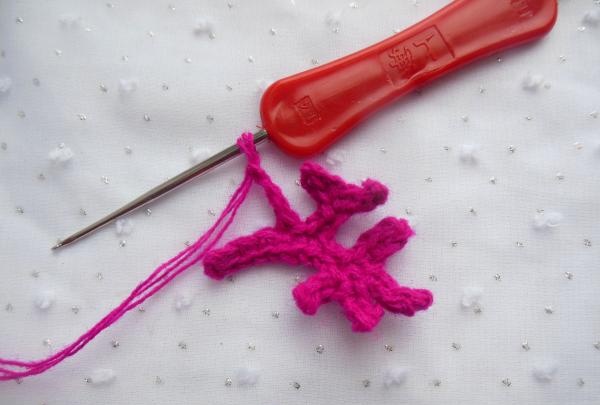
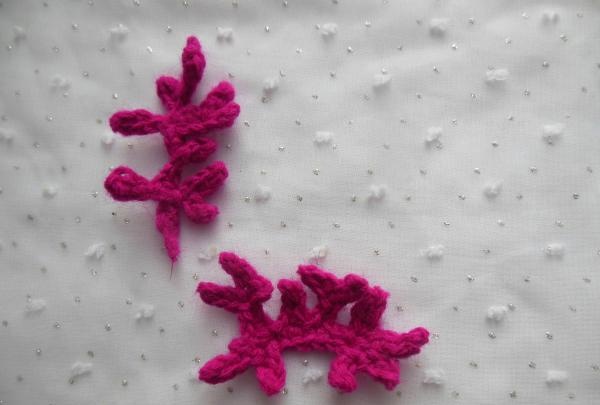
A starfish, in principle, can also be crocheted, but for a more interesting design it is better to make it of a different structure - a little more voluminous, more embossed, or from denser threads. You can also place several natural objects - glue shells, flints, dried seahorses and other sea creatures.
This composition involves plasticine, which became the basis for creating the star.
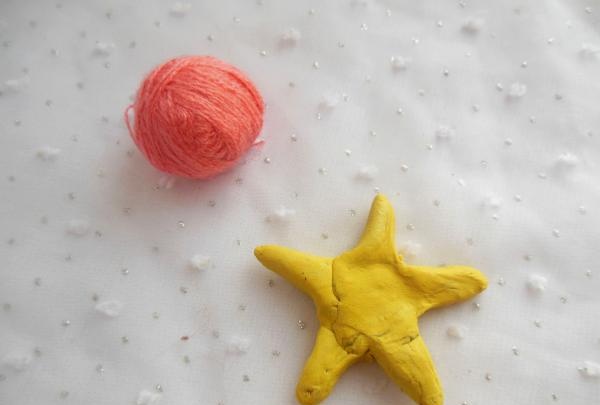
We simply wrapped this star with thread and decorated it with beads.
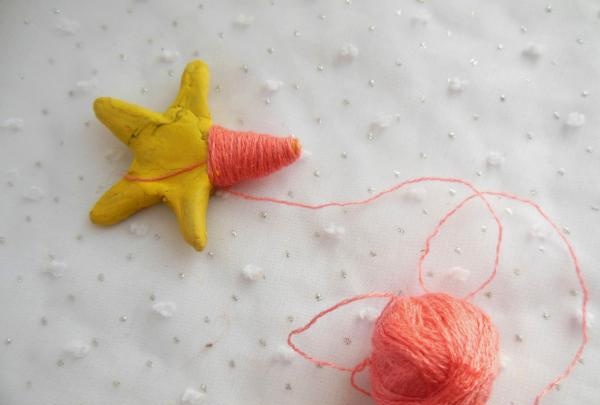
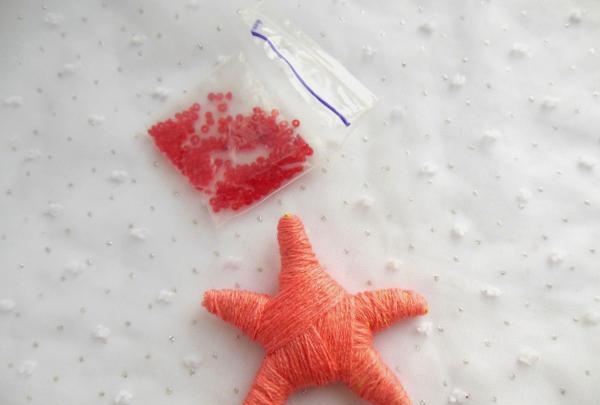
If all the details can be easily sewn to the fabric, then the star will have to be glued with polymer (preferably waterproof and thick) glue.
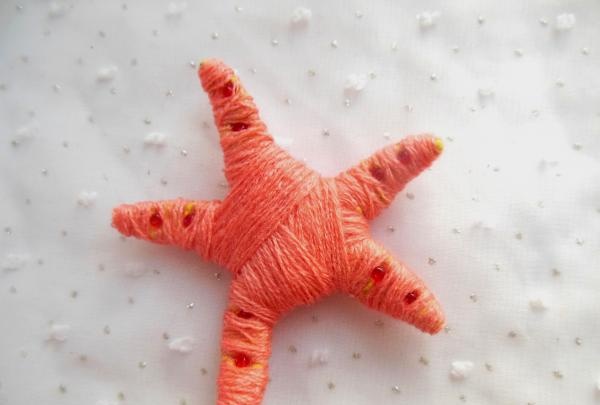
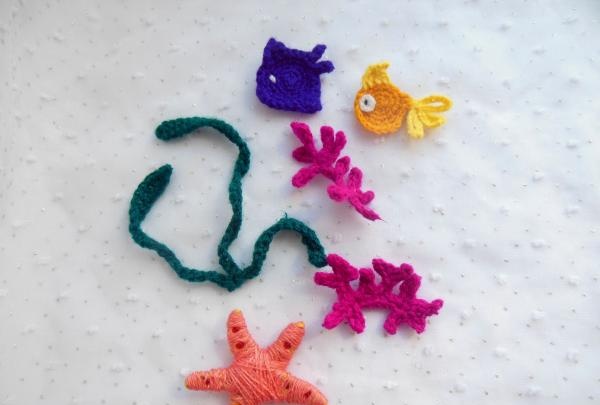
All knitted elements of this pattern should be placed in the center, sewing to the fabric with the same yarn that was used to knit each of them.
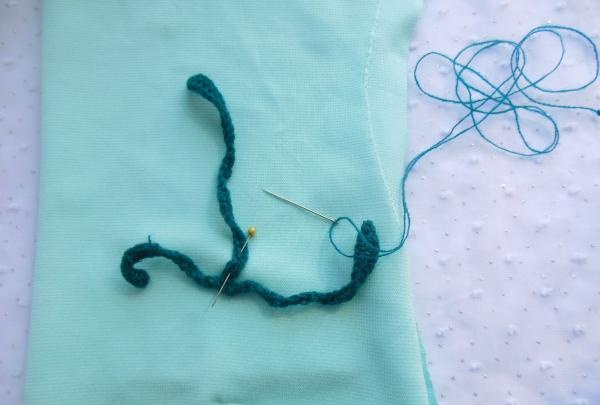
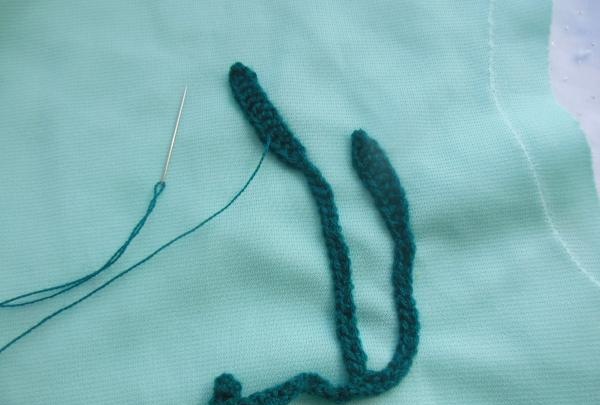
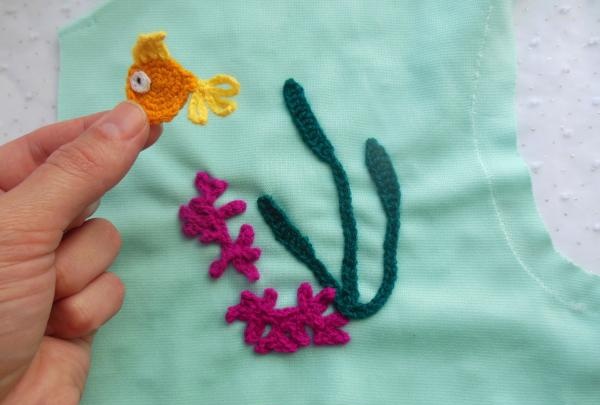
At the end, we carefully stretch the finished image onto the cardboard and sew all sides of the fabric from the wrong side together.
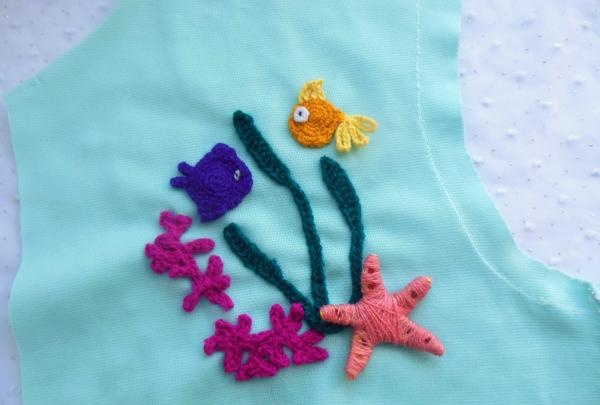
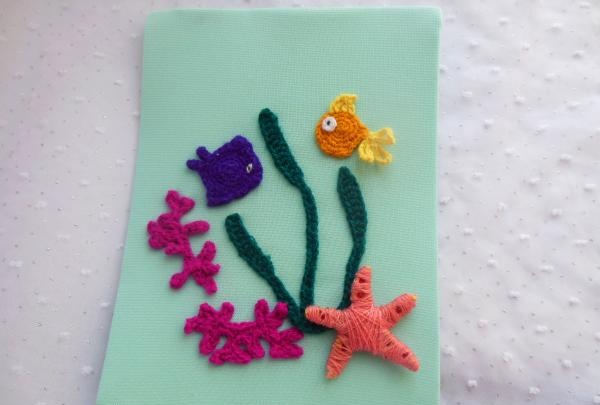
All that remains is to place the bright drawing in a frame and admire this “knitted” work of art on cold winter evenings.
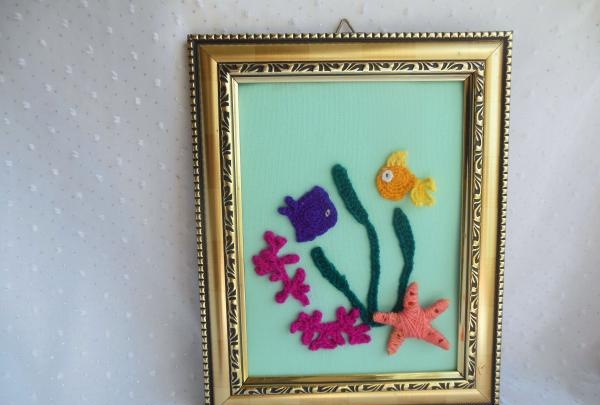

Recreating a piece of marine fauna and flora is not a difficult task, because you can learn the basics of crochet in just a few hours. Yes, and for such a picture you will need very few materials:
• 6-7 small multi-colored balls of thin yarn (the presence of green threads is a prerequisite, the rest of the yarn can be chosen arbitrarily);
• thin crochet hook (1.4-1.6 mm);
• any wooden frame 15x21 cm (you can take a frame from an unnecessary picture);
• green, blue or turquoise elastic fabric (preferably stretch);
• sheet of thick cardboard;
• plasticine;
• sewing needle with a large eye.


We knit all sea creatures from yarn. We use the fabric once to create background contrast, otherwise we constantly work with crochet.
First we knit fish. We collect 2-3 air loops (in.n), we combine the chain into a ring and knit up to 5 circular rows with single crochets (dc/dc).


The goldfish has a bushy tail, so part of the circumference needs to be lengthened in straight rows (it is enough to knit 2-3 stitches twice) and knit 3 chains of 14 in each from this section. P.


We knit the fins with double crochets, gradually increasing their number (4 double crochets with a uniform increase: double crochet, then 2, 3, etc.).

For another fish (angelfish) we make such fins on both sides (opposite each other).

Then we form eyes for the fish with a needle and black or white thread.


We make algae and corals from chains, which we knit with the same double stitch. n, where only the tips of the green sea plants are expanded by adding additional yarn overs in 5-6 columns from above.



A starfish, in principle, can also be crocheted, but for a more interesting design it is better to make it of a different structure - a little more voluminous, more embossed, or from denser threads. You can also place several natural objects - glue shells, flints, dried seahorses and other sea creatures.
This composition involves plasticine, which became the basis for creating the star.

We simply wrapped this star with thread and decorated it with beads.


If all the details can be easily sewn to the fabric, then the star will have to be glued with polymer (preferably waterproof and thick) glue.


All knitted elements of this pattern should be placed in the center, sewing to the fabric with the same yarn that was used to knit each of them.



At the end, we carefully stretch the finished image onto the cardboard and sew all sides of the fabric from the wrong side together.


All that remains is to place the bright drawing in a frame and admire this “knitted” work of art on cold winter evenings.

Similar master classes
Particularly interesting
Comments (0)

